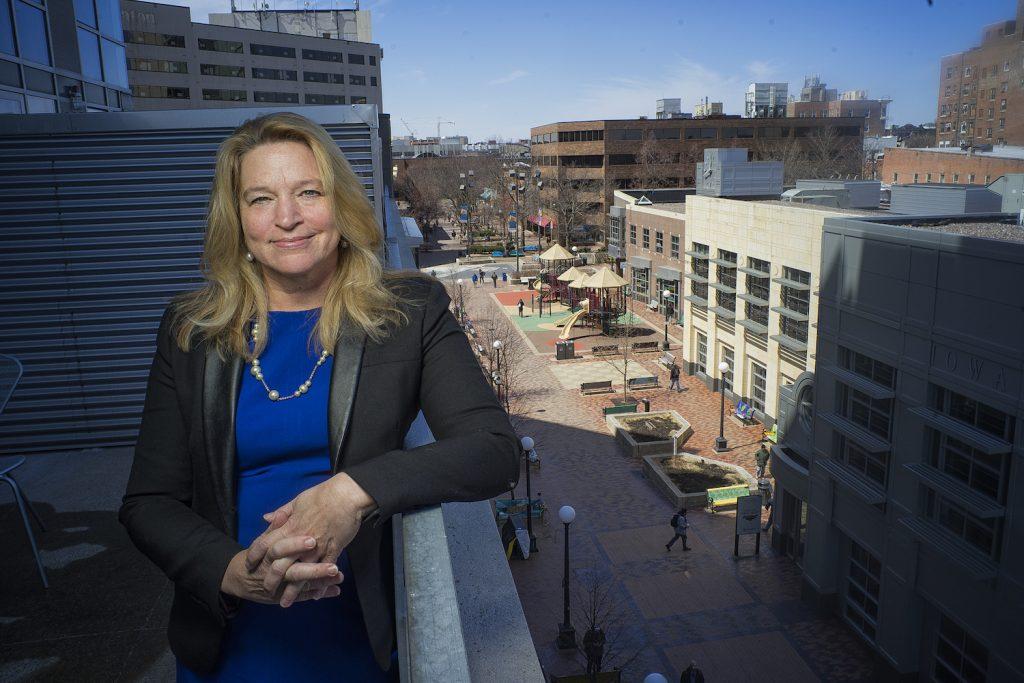“The one thing I hope to convince you of is that we live on the most beautiful planet.”
Ellen Stofan stood before a crowd of people in the Englert on Tuesday evening, presenting her Theme Semester-sponsored lecture on “Climate Change: Keeping the Earth green, clean, and habitable.” Crowds are no stranger to Stofan; as the chief scientist for NASA, she regularly faced groups of her peers.
Throughout her career at NASA, Stofan studied different planets, such as Venus — for Tuesday’s lecture, she compared climate models from these planets to Earth’s to talk about climate change from a planetary perspective.
But she wasn’t always one of the nation’s premier astronomical experts, she was once a little girl who was interested in space.
“I grew up around the space agency, and I went to my first launch when I was 4, and my mom was a science teacher,” Stofan said. “I will say when I was a kid, to me, NASA was a place where guys worked, and it never entered my head when I was younger that NASA was a place where I could work … The one thing I’ll say about both of my parents is that they were incredibly supportive.”
Stofan said this support system was life-changing for her, and said it is equally important for those considering a STEM-related field to have people who are reassuring of their career choices.
Although Stofan said she feels encouraged by the rising rates of women and minorities in STEM fields, she said there’s a much more pressing issue that needs to be discussed — climate change.
“I think that we’re at this really unfortunate time period where there’s so much confusion about climate change, yet from the scientific community, there’s no debate,” Stofan said. “When I continue to see people confused that it’s happening at all, this is a real issue because we should be past talking about it, it’s time for action.”
RELATED: UI ready to shun coal
Stofan said the U.S. needs to get to a point over the next 30 years where “we de-carbonize our economy and take steps to reverse the impact of climate change,” and this cannot happen if everyone isn’t on the same page. She also said there are ways to facilitate communication with those who don’t necessarily realize the impact of climate change.
“The scientific community has really turned to the sociological and psychological community … a lot of research has shown that if you present hard-core climate deniers, simply showing them fact after fact after fact doesn’t persuade them,” she said. “Who I really want to talk to is the large majority of people who honestly haven’t paid attention, who don’t know that it’s something that can affect them.”
Sara Maples, the interim director of the University of Iowa Office of Sustainability, said she enjoyed Stofan’s lecture but is worried about the implications of climate change.
“I think climate change is one of the biggest challenges of our time,” Maples said. “We are very delighted to have Ellen Stofan here to share her perspective on the issue and compare Earth to a planetary perspective.”
RELATED: Area meteorologists tread carefully on climate change
Stofan ended her lecture with an excerpt from Carl Sagan’s book Pale Blue Dot, which was inspired by a photograph taken by Voyager 1 in 1990. She said the quote encapsulates the love for this Earth we all must share.



